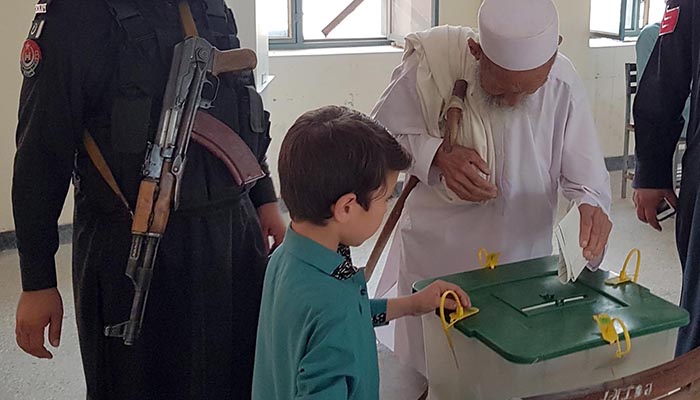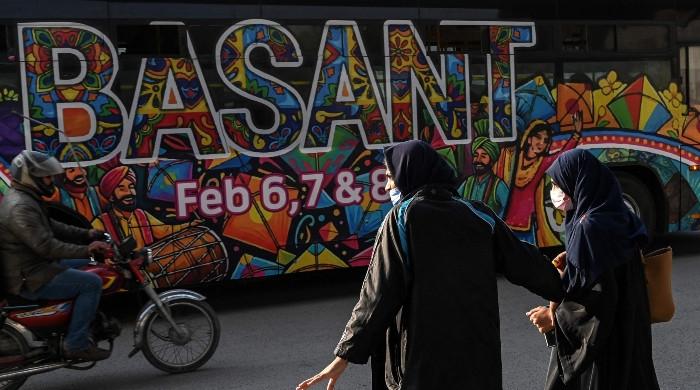Balochistan Awami Party emerges as surprise victor in ex-FATA election
Post ex-FATA election, some independents have joined the Balochistan Awami Party, a political party that is non-existent in Khyber Pakhtunkhwa.
August 16, 2019

The first-ever election for the provincial assembly of Khyber Pakhtunkhwa in the erstwhile Federally Administered Tribal Areas (FATA) produced many firsts, but one that stood out was the decision by some independently elected lawmakers to join the Balochistan Awami Party (BAP) even though the party is non-existent in the province.
The BAP, which was launched by traditionally strong, pro-establishment politicians before the July 2018 general election to focus on Balochistan’s issues, has suddenly become a factor in Khyber Pakhtunkhwa (KP) politics. It already has three members of the provincial assembly and is expected to get one more by winning one of the four seats reserved for women. This is the first time that a party based in Balochistan has got seats in the KP Assembly. It is interesting though that the BAP had made no effort to establish its organizational set-up in KP or consider contesting election in the province.
The July 20 election in former FATA was unique for a number of reasons.
The polls were held despite misgivings within the one-year timeline stipulated in the 25th Constitutional Amendment, which formalized FATA’s merger with KP in May 2018. The election was a major step towards the mainstreaming of FATA by giving it representation in the KP Assembly.
Though security concerns had caused delay of 18 days in holding the election for the 16 general seats, the electioneering and polling were held in remarkably peaceful conditions. The turnout was satisfactory considering the usually low participation of the electorate in previous elections in FATA. In particular, women’s turnout was better and the Election Commission of Pakistan (ECP) didn’t have to order repolling in any of the 16 constituencies as the condition of a minimum 10 per cent polling by female voters was met. This condition made a difference as political parties and candidates put in extra efforts to mobilize women voters. Also, two female candidates contested on the general seats against males for the first time in the merged tribal districts. They had no chance of winning, but their candidature put them in the media limelight.
As expected, the six independent winners were courted by the ruling PTI to persuade them to join it.
The PTI had performed below expectations in the polls as it won only five of the 16 general seats after having done well in last year’s general election in which it secured six of the 12 seats in the National Assembly from erstwhile FATA. The PTI tried but failed to net more than two of the six independents even though it didn’t need them due to its two-thirds majority in the provincial assembly.
Two independents, Mohammad Shafiq Afridi elected from Bara in Khyber district and Ghazi Ghazan Jamal, the MPA-elect from Orakzai, quickly joined the PTI. Another independent MPA, Mir Kalam Khan, declined to join any party. He claimed affiliation with Mahmood Khan Achakzai’s Pakhtunkhwa Milli Awami Party (PkMAP) though the Pashtun Tahafuz Movement (PTM) supporters present in significant numbers in North Waziristan enthusiastically backed him in the election. In any case, the PkMAP and PTM are allies.
The remaining three newly-elected independent MPAs sprang a big surprise by joining the BAP. The group is led by Alhaj Shahjee Gul Afridi, a former member of the National Assembly from Khyber and one of the few tribal parliamentarians who spearheaded the campaign to merge FATA with KP. His family is wealthy and politically influential and is commonly referred to as Alhaj Karwan. His brother Taj Mohammad Khan Afridi is a member of the Senate. In the recent election, Shahjee Gul Afridi’s son Bilawal Afridi and nephew Shafiq Sher Afridi were elected MPAs defeating the candidates of the PTI and other parties.
Soon after the election, Shahjee Gul Afridi tried to form a group of all six independent MPAs. Almost all of them wanted to join a ruling party as had been the tradition among independent lawmakers elected from FATA in the past. A few meetings were held, but a consensus couldn’t be reached. A bigger group of independents would have given it greater bargaining power while negotiating an alliance with the PTI or other ruling parties, including the PPP which is in power in Sindh and the BAP.
In the end, Shahjee Gul Afridi was left with just three MPAs, including his son and nephew and Abbas-ur-Rahman, an independent elected from Mohmand district and the brother of Senator Hilal-ur-Rahman.
Joining the PTI wasn’t an option as their candidates had contested election against each other. Besides, federal Religious Affairs Minister Noorul Haq Qadri who had defeated Shahjee Gul Afridi in the July 2018 election is in the PTI and the two families have been traditional rivals in Khyber. The latter had emerged victorious in their previous contest in the 2013 general election.
Eventually, Shahjee Gul Afridi contacted the BAP head Jam Mir Kamal Khan Alyani, who is also the chief minister of Balochistan, and expressed the wish to join his party. This must have come as a pleasant surprise to the BAP leader as his party was entering the KP Assembly without even trying. It had emerged as the biggest party in Balochistan in the July 2018 polls and is now part of the ruling alliance with the PTI in both the provincial and federal government.
After this lucky break, the BAP could consider focusing attention on KP, particularly the merged tribal districts to which its four MPAs belong. It would need to seek popular support by highlighting the problems and aspirations of the people of KP.
Perhaps it may also consider renaming the BAP as the Balochistan and Pakhtunkhwa Awami Party.











